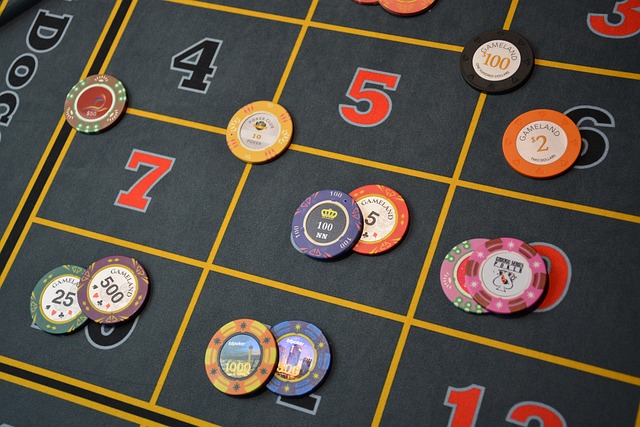Nikola Jokić, the Serbian basketball maestro and two-time NBA MVP, is one of the most unpredictable yet reliable stars in the modern game. His unique combination of scoring, playmaking, and rebounding makes him a dream for Denver Nuggets fans — and a fascinating figure for sports bettors. To profit from 22Bet wagers involving Jokić, you… Continue reading How to Bet on Nikola Jokić and Boost Your Winning Edge
Author: Effie Sandoval
Why Some Craps Players Only Bet the ‘Horn’ – Superstition or Strategy?
Craps is one of the most exciting casino games, filled with fast-paced action and a variety of betting options. Among the many available, the ‘Horn’ bet stands out as a favorite for many, but why do certain gamblers swear by this high-risk wager? Is it based on superstition, a hidden strategy, or just blind luck?… Continue reading Why Some Craps Players Only Bet the ‘Horn’ – Superstition or Strategy?
Smart Sports Betting in 2025: Mistakes to Avoid
Sports betting is thrilling, speedy, and full of potential. But it can turn into an issue if you have no idea what you’re getting yourself into. The majority of new players dive in without a plan, lose their money instantly, and before they know it, they believe the whole thing is rigged. That’s not the… Continue reading Smart Sports Betting in 2025: Mistakes to Avoid
From Slots to Sportsbooks: The Evolution of Online Gambling
Online gambling has come a long way since its early days. What started with a few simple slot games has transformed into a massive industry. That includes poker, live dealer tables, and full-featured sports betting platforms like 22bet. This evolution has been driven by technology, changing player preferences. And the increasing availability of high-speed… Continue reading From Slots to Sportsbooks: The Evolution of Online Gambling
The Future of Micro-Betting: Wagering on Every Play, Point, or Moment
The goal of sports betting has always been to forecast results, including who will win, who will lose, and by how much. Micro-betting is a new type of wagering that is gaining over as technology continues to drive gambling into faster, more interactive territory. Conventional betting looks at the big picture. In contrast, micro-betting zooms… Continue reading The Future of Micro-Betting: Wagering on Every Play, Point, or Moment
Timeboxing Tools: Alarms, App Limits, and Session Caps
Timeboxing turns open-ended play into scheduled, predictable sessions. Instead of guessing when to stop, you set a clock and let tools enforce it. The goal is simple: more focused decisions and less drift into tilt or fatigue. Why timeboxing works for gambling and VR Casinos and live markets reward attention. After an hour, focus drops,… Continue reading Timeboxing Tools: Alarms, App Limits, and Session Caps
What is Cash Out in Sports Betting
Cash out is an innovative feature offered by online sportsbooks that allows players to end their bet before a sports contest concludes. It is a pretty simple innovation that has helped quite a lot of bettors. Rather than potentially losing all, you get to keep a certain percentage. The feature works for both live and… Continue reading What is Cash Out in Sports Betting
Live-Stream Influence: How Creators Affect Your Choices
Streamers shape what you watch, try, and stake—even when you think you’re immune. Their cadence, edits, and chat hype nudge timing, game selection, and risk tolerance. If you don’t guard your process, you end up borrowing someone else’s variance and mistakes. How influence sneaks into decisions Creators compress time. Highlights make rare outcomes feel common,… Continue reading Live-Stream Influence: How Creators Affect Your Choices
The Series “Mud Madness”: Thrilling Mud Races and Why They Might Appeal to Fans of Unusual Bets
Sports betting is a great way to unwind after work — place a couple of your favorite bets 20Bet login and entertain yourself even more by reading about them. If you think you’ve seen it all in the world of sports, Mud Madness will quickly prove you wrong. This series is all about competitions where… Continue reading The Series “Mud Madness”: Thrilling Mud Races and Why They Might Appeal to Fans of Unusual Bets
Branded Slots: Do Licensed Themes Improve Gameplay or Just Hype?
Branded slots borrow art, music, and characters from films, TV, or games. The promise is familiarity and big-production polish. The question is whether licensing improves the math you play—or just the marketing you see. What licensing changes under the hood Licensing fees and royalties raise production costs. Studios often recoup that spend with mechanics that… Continue reading Branded Slots: Do Licensed Themes Improve Gameplay or Just Hype?









